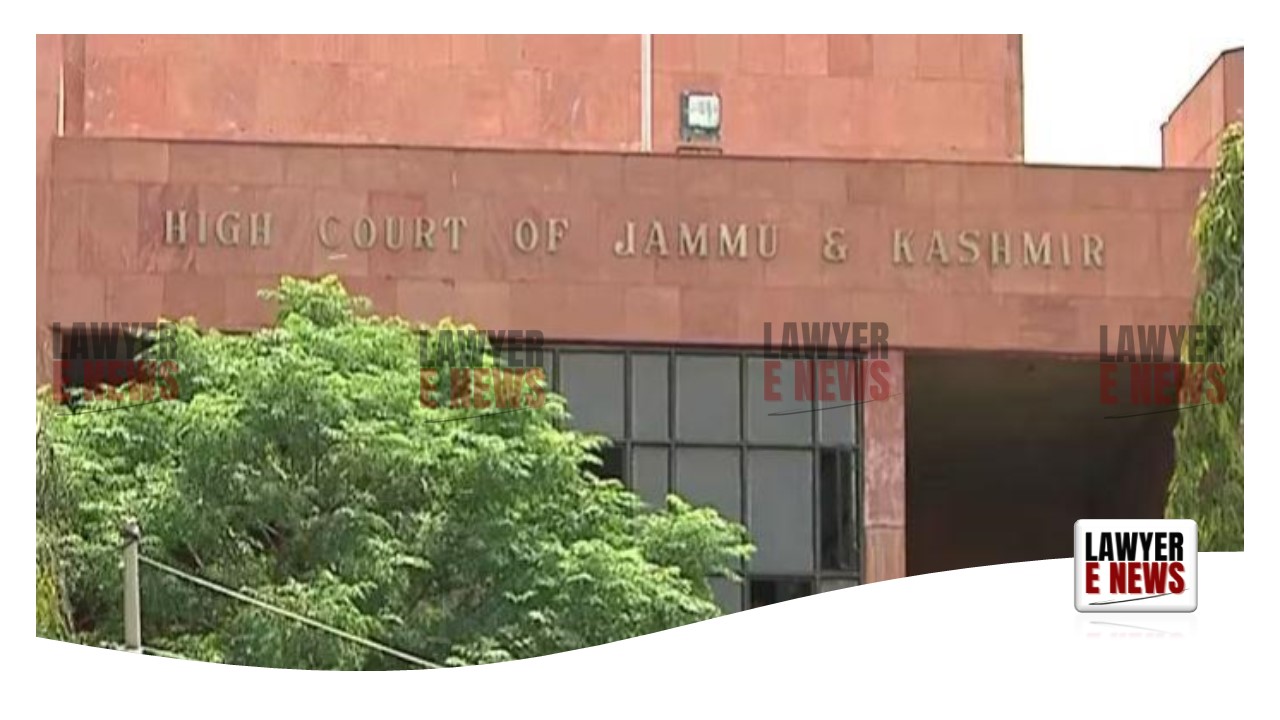-
by Admin
15 February 2026 2:36 AM



High Court emphasizes the principle of estoppel, barring participants in selection processes from later challenging them.
In a significant ruling, the High Court of Jammu & Kashmir and Ladakh at Srinagar dismissed an appeal challenging the selection process for the post of Medical Technologist at Sheri Kashmir Institute of Medical Sciences (SKIMS). The judgment, delivered by a bench comprising Hon’ble Chief Justice and Hon’ble Justice Wasim Sadiq Nargal, reiterated the principle of estoppel, underscoring that candidates who participate in selection processes cannot later dispute their validity.
The case involved Qurat-ul-ain, who applied for the Medical Technologist post advertised by SKIMS in 2017. Out of the 20 advertised posts, only 15 candidates applied. Despite participating in the selection process, which included a written test and interview, Qurat-ul-ain later challenged the necessity of these steps, arguing that all eligible candidates should have been appointed directly based on merit.
Participation and Estoppel: The court observed that Qurat-ul-ain willingly participated in the selection process without raising objections at the outset. “The appellant cannot challenge the selection process after willingly participating in it,” the bench noted, citing the principle of estoppel.
Doctrine of Appropriation and Reprobation: The judgment also discussed the doctrine of appropriation and reprobation. “A candidate cannot approbate and reprobate, accepting the benefits of the process and then turning around to challenge it when the outcome is unfavorable,” the court stated, referencing several Supreme Court precedents, including Dhananjay Malik v. State of Uttaranchal and Madras Institute of Development Studies v. K. Sivasubramaniyan.
The court’s reasoning was firmly rooted in established legal principles. It emphasized that Qurat-ul-ain, by participating in the process and later failing to secure the required marks, could not legally contest the process. “The appellant is estopped under law from questioning the selection procedure after having subjected herself to it and being assessed based on it,” the bench remarked.
Justice Wasim Sadiq Nargal articulated, “This conduct of the appellant clearly disentitles her from questioning the selection. The appellant cannot say at one time that a process is valid to gain an advantage and then turn around and say it is invalid when the result is unfavorable.”
The dismissal of the appeal reinforces the judiciary’s stance on the integrity of selection processes. By upholding the lower court’s decision, the High Court has sent a clear message about the application of the principle of estoppel and the doctrine of appropriation and reprobation. This judgment not only affirms the legality of the selection process at SKIMS but also sets a precedent for similar cases in the future, ensuring that participants in selection processes cannot later contest their outcomes without legitimate grounds.
Date of Decision: 30th May 2024
